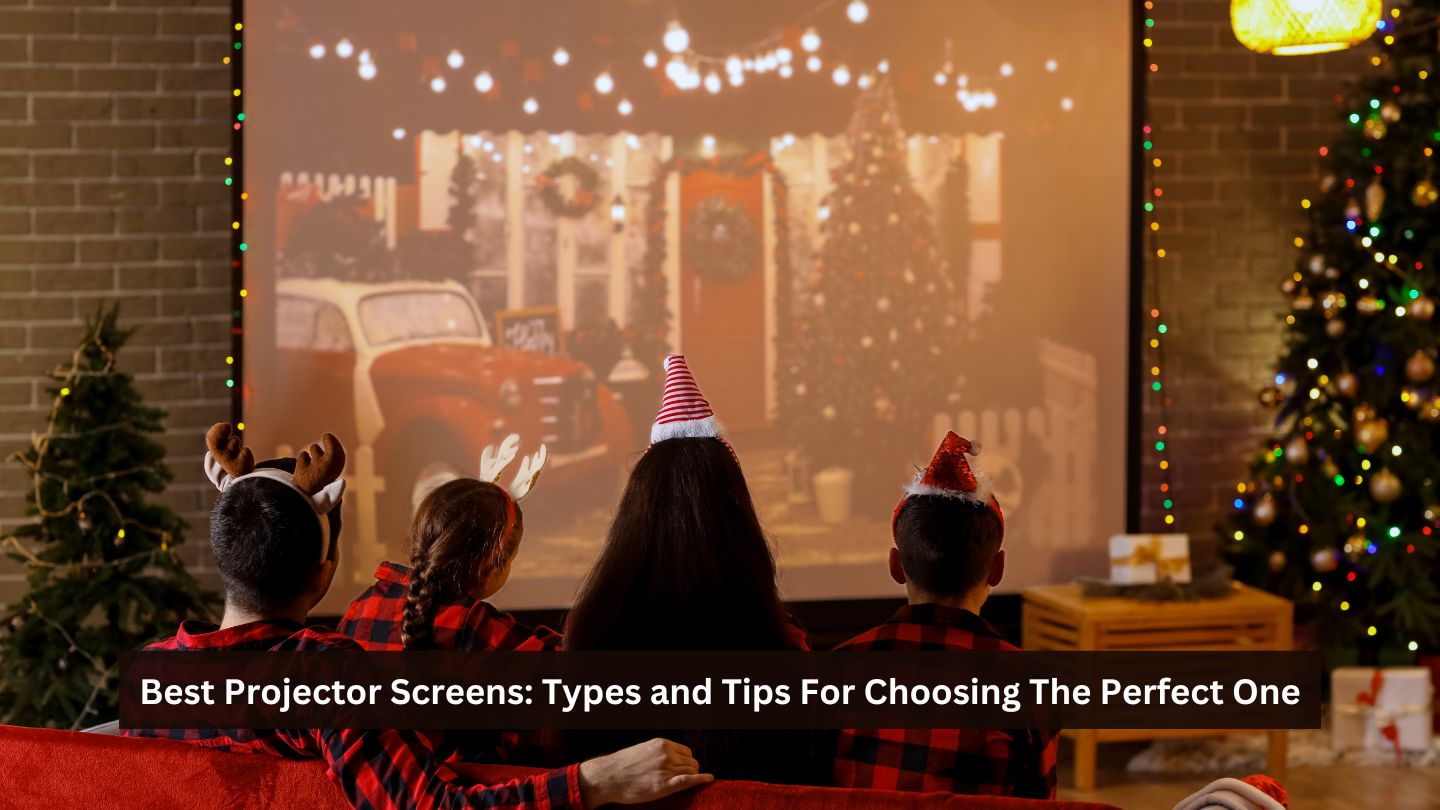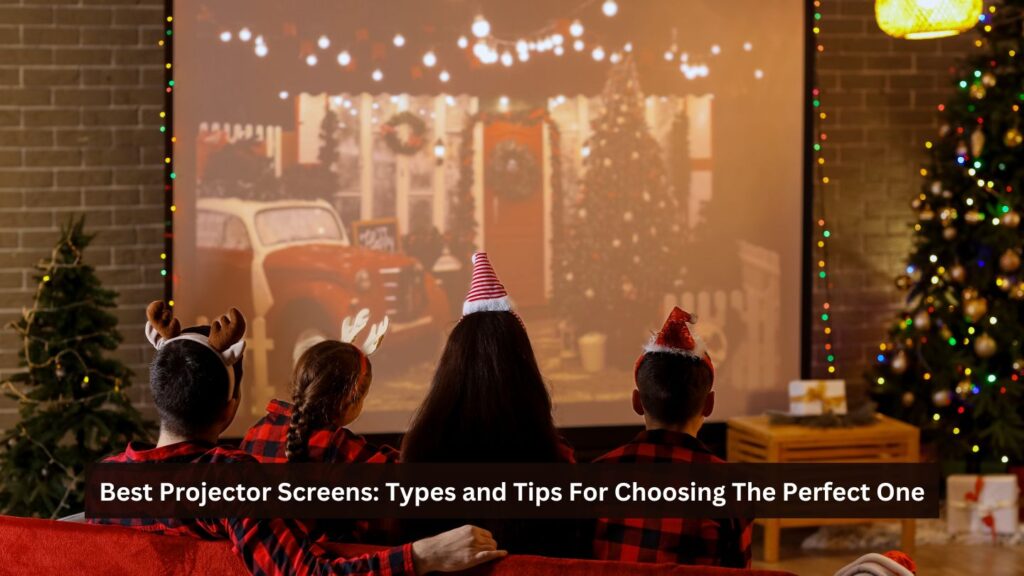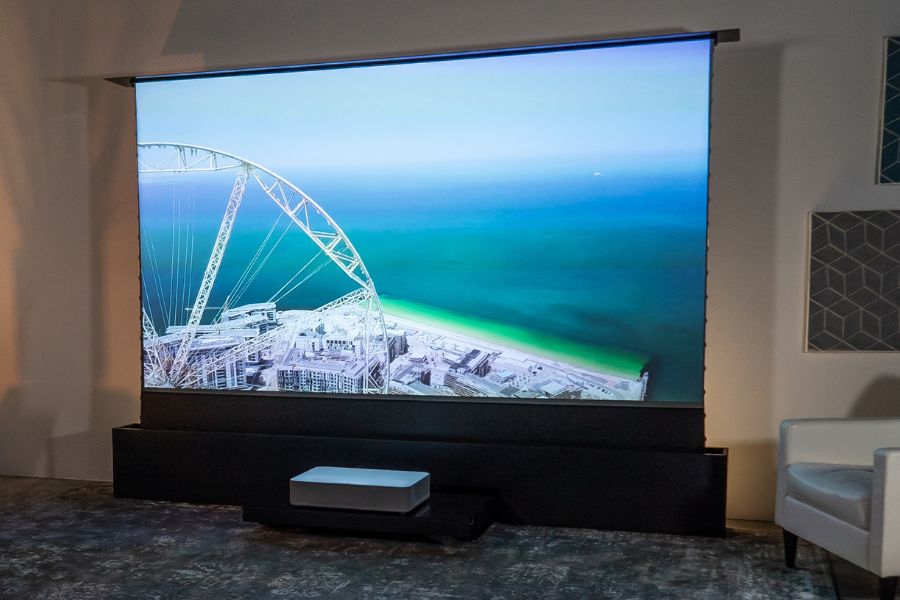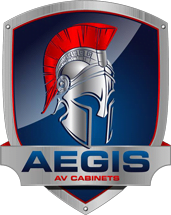

What happens if a snake comes to bite you from the wall? If someone shoots in your head? In 2024, the realm of the advanced era, everything is advanced now. It is possible with the best Projector Screen that gives you a real viewing experience. You can feel like you’re watching something real and that everything is happening right before you. Those days are gone when black-and-white pictures entertained you. Now, enjoy the best projector screens home theater experience in your home.
A projector screen is essential when Enhancing your home theater or presentation setup. With so many options, choosing the right screen can be difficult. Don’t worry! This guide will explain the different types оf projector screens and give you helpful tips so you can choose the best one for your needs.
Why Projector Screens Matter
Projector screens are key to a great home theater setup. They give you a smooth, color-neutral surface, keeping the image bright and clear. This ensures your projector works its best. The right screen can make a huge difference in your viewing experience, so picking the best one for your needs is important.
Projector Screens: Understanding Their Functions And Benefits
A projector screen are specially designed surface that reflects light from a projector, creating a clear and vibrant image. Unlike projecting onto a wall оr sheet, screens offer several advantages:
Enhanced Image Quality: Projector screens have a special coating that optimizes light diffusion and enhances image quality. This results in sharper, brighter images with better contrast.
Wider Viewing Angles: Most screens provide great viewing angles. This means everyone in the room can see a clear picture, no matter where they sit.
Reduced Ambient Light Rejection: Some screens, especially ALR projector screen (Ambient Light Rejecting) screens, minimize the impact оf ambient light. This makes them perform well even in bright rooms.
Portability and Convenience: Portable automatic projector screens are lightweight and easily set up. They are perfect for presentations, outdoor movie nights, and temporary setups.
Variety of Sizes and Formats: Projector screens have many sizes and aspect ratios. You can find the ideal fit for your space and viewing needs.
Best Types of Projector Screens

We will talk about a few commonly used Types of Projector Screens. That knowledge helps you to pick your perfect one. Let’s know one by one
Fixed Frame Projector Screens
We start with the most popular and common projector screens which are Fixed-frame projector screens. It could be the best choice projector screens for home theaters for some people. They stay mounted in one place and offer excellent picture quality with various screen materials. These screens are great for home theaters where the screen doesn’t need to be moved often, providing a lasting and immersive viewing experience.
| Pros | Cons |
| Best picture quality due to smooth, textureless materials | Permanent installation cannot be easily moved or removed |
| Durable and tend to last longer | Higher cost compared to other options |
| Provide a more immersive viewing experience | Limited flexibility, not suitable for temporary or changing presentation needs |
Motorized Projector Screens
Motorized projector screens are designed for convenience and style. They roll up into a case when not used, perfect for movie nights. You can choose between non-tensioned and tab-tensioned options; tab-tensioned screens offer the best performance. This automatic projector screen is perfect for those who don’t want manual adjustments and want high-quality viewing.
| Pros | Cons |
| Convenient, easy to operate, and can be rolled up when not in use | Higher cost compared to other options |
| Elegant, sleek design that can enhance the room’s aesthetics | Complex installation and requires more maintenance |
| Provide good picture quality due to smooth materials | Limited portability compared to other screen types |
Pull-Down Projector Screens
If you’re looking for a budget-friendly option, a pull-down projector will not disappoint you. It’s also the best option for home theaters and offices. Pull-down projectors provide good color accuracy and are easy to use and install. However, this screen material isn’t as smooth as fixed-frame screens.
| Pros | Cons |
| Budget-friendly option | Lower picture quality compared to other screen types |
| Easy to install and requires minimal setup | Limited flexibility, not suitable for large or changing presentation needs |
| it’s Portable and can be easily moved to different places | Less visually appealing due to manual operation |
Portable Projector Screens
Portable projector screens are usually used for presentations and events and are also made for them. It’s lightweight and easy to set up, ideal for temporary оr outdoor use. You will find them in different sizes and mounted оn tripods оr stands for flexibility.
| Pros | Cons |
| Lightweight and easy to transport | Lower picture quality compared to other screen types |
| Simple to set up and require minimal equipment | Limited durability, prone to damage, and may not last as long |
| Budget-friendly option | Limited flexibility, not suitable for large or changing presentation needs |
Tips for Choosing the Best Projector Screen
As you know, finding the desired projector screen in today’s market is tough. While choosing the best projector screen, we are giving you some tips that will help you pick the right one:
Room Size and Viewing Distance
The size of your room and how far viewers will sit are crucial. Larger rooms benefit from a big projector screen, while smaller spaces need smaller ones for optimal viewing.
Aspect Ratio and Screen Dimensions
Choose a screen with the right aspect ratio that matches your content format. For HDTV, go for 16:9; Cinemascope screens work best for movies.
Screen Material and Coatings
Screen material affects image quality. Look for smooth, texture-free materials with coatings that improve brightness and contrast.
Budget and Installation
Think about your budget and how easy the screen is to install. Fixed frame screens cost more but offer top-notch quality. Motorized projector screens are convenient but may require complex installation.
Ambient Light
Opt for ALR screens to effectively counteract light interference in brightly lit rooms. Standard screens are sufficient in rooms with controlled lighting.
Additional Features
Some screens include extras like ambient light rejection, acoustic transparency, or rear projection surfaces. These features can enhance your viewing and give you more setup options.
Additional Considerations and Tips for Choosing a Projector Screen
Apart from the main factors, here are more details to think about when choosing your projector screen:
Screen Material
Most screens use either matte white or high-gain materials. Matte white provides neutral colors and wide viewing angles, which are good for all types of content. High-gain screens are brighter and ideal for dimmer rooms but may have narrower viewing angles and potential bright spots.
Black Backing
A black backing improves contrast and prevents light from passing through. This is especially useful in bright rooms or with high-gain screens.
Screen Edges
Look for screens with a black velvet border that absorbs stray light and sharpens image focus.
Durability
Always consider the material and build quality of the screen frame. Aluminum frames last longer than plastic ones.
Warranty
A good warranty is always important. This assurance shows the manufacturer’s confidence in the quality of their product.
Tips for Getting the Best Performance from Your Projector Screen
Well, once you’ve chosen your desired screen, follow these bellow tips to get the best performance:
- Keep the Screen Clean: Clean it regularly with a soft cloth to maintain image better quality.
- Control Ambient Light: Dim lights or use blackout curtains to improve image quality, especially with standard screens.
- Position the Projector Correctly: if you want to get the best image shape, you have to center the projector lens and adjust the angle.
- Adjust Projector Settings: To enhance picture quality on your screen, adjust Fine-tune brightness, contrast, and color settings on the projector.
The Ares Series: Motorized Rising Ultra Short Throw Projector Screen

The Ares Series is perfect for those who want the best projector setup. Available in 100 inch projector screen and 120 inch projector screen sizes. These motorized screens rise quietly from a hidden base, offering a convenient and immersive viewing experience. The ALR projector screen material effectively blocks ambient light, ensuring vibrant visuals even in bright rooms. Grab the best short throw projector screen Now.
Unparalleled Expertise and Support
At AegisAV, we’re not just about great products. We always aim for our customer satisfaction. During our journey, we have never faced a single bad review. We always deliver unmatched expertise and top-notch support. Our specialists will make your desired one after listening to your needs to help you pick a suitable one. We provide consultations that ensure you make an informed decision.
FAQ’s
What Is The Best Type Of Projector Screen For A Home Theater?
It depends. A wall-mounted or fixed-frame projector screen is suitable for a home cinema projector screen. It provides top-notch image quality and a sleek look. On the other hand, motorized projector screens symbolize luxury. If you like Fancy things, then a projector screen motorized meets your needs.
How Do I Choose The Right Size Projector Screen?
While choosing the right size projector screen, remember your room size and how far you will watch it. A large projector screen, like a 120 inch projector screen, іs better for bigger rooms. Conversely, a 100 inch projector screen works well with smaller spaces. It all depends оn what fits best іn your home setup.
Why Is A Projector Screen Expensive?
Projector screens cost more because they need precise engineering and special materials. This ensures the images projected are clear and accurate. Screens with ALR (Ambient Light Rejecting) technology are pricier due to their high quality and better performance.
Is A Projector Screen Good For Your Eyes?
Yes, projector screens are better for your eyes than LED TV screens. Projectors emit less harmful blue light, which can be bad for your eyes, especially from LED screens. Projector screens also absorb most of this harmful blue light, reducing eye strain.
Is A Projector Screen Better Than A Wall?
Yes, a projector screen gives better picture quality overall. It has more accurate colors, is brighter, and gives a consistent viewing experience. It’s the best choice for those who want high-quality projections. Using a wall for projection is cheaper and flexible for different settings.
Final Thought
We hope you can select the perfect one that fits your needs. Choosing the right projector screen is challenging, but understanding the types and factors helps you make smart choices. Projector screens are always important in home theaters or corporate areas nowadays. Always look for key factors like screen size, aspect ratio, and material that ensure your projector screen gives the best picture quality.
